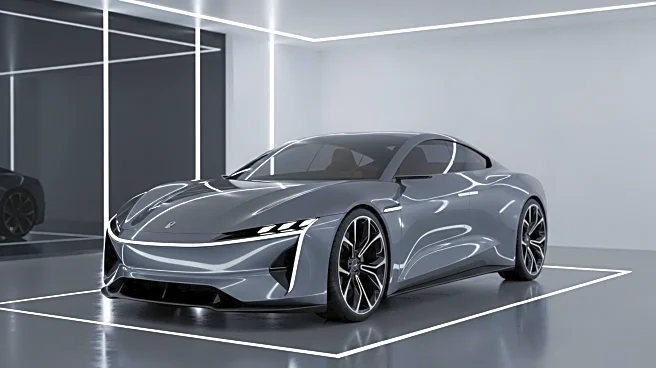What's Happening?
XPENG UK, a car manufacturing company, has conducted a poll of 2,000 drivers to explore the features they desire in future vehicles. The survey revealed that motorists are interested in advanced technologies
such as self-cleaning paintwork, passenger micro-climates, and levitating wheels to avoid potholes. Other desired features include solar panel roofs, noise-cancelling cabins, and self-cleaning seats. The research indicates that 71% of drivers prioritize technology in their cars over color or status symbol. Despite the futuristic nature of these features, XPENG UK notes that some are already becoming a reality, with current models offering advanced cameras and sensors. The study also found that many drivers struggle with existing car technology, with 35% unable to operate all the features in their current vehicles.
Why It's Important?
The findings from XPENG UK's research highlight a growing demand for innovative automotive technologies that enhance safety and comfort. As drivers increasingly prioritize tech features, car manufacturers may need to accelerate the integration of advanced systems to meet consumer expectations. This shift could lead to significant changes in the automotive industry, influencing design, production, and marketing strategies. The demand for futuristic features also suggests potential growth in sectors related to automotive technology development, such as software engineering and renewable energy. However, the challenge remains for manufacturers to ensure user-friendly interfaces, as many drivers currently struggle with existing technology.
What's Next?
XPENG UK and other car manufacturers may focus on developing and implementing the desired futuristic features in upcoming models. This could involve increased investment in research and development to create practical applications for technologies like levitating wheels and self-cleaning systems. As the industry moves towards more advanced vehicles, manufacturers might also prioritize consumer education to help drivers better understand and utilize new technologies. Additionally, regulatory bodies may need to consider new safety standards and guidelines for emerging automotive technologies.
Beyond the Headlines
The push for futuristic car features reflects broader societal trends towards sustainability and technological integration. As consumers seek more eco-friendly and efficient vehicles, the automotive industry may experience a shift towards greener technologies, such as solar panel roofs and self-regenerating fuel systems. This transition could have long-term implications for environmental policy and urban planning, as cities adapt to accommodate advanced vehicles. Furthermore, the desire for personalized driving experiences, such as passenger micro-climates, underscores a cultural shift towards customization and individualization in consumer products.









